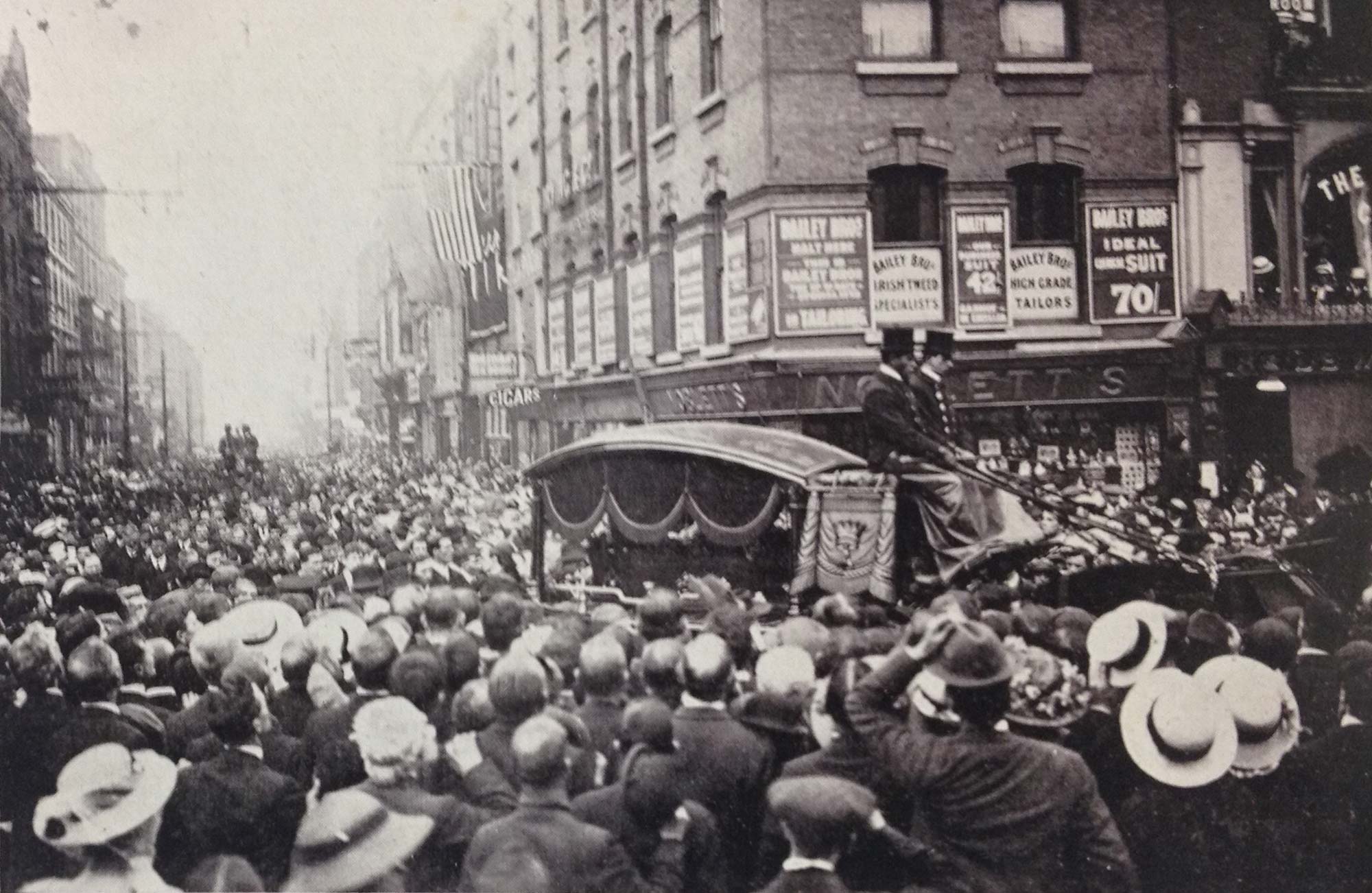Behaviour of British Army after Howth Gun running was ‘illegal and unjustifiable’
Four people died after British soldiers opened fire on Bachelor’s Walk
The actions of the British army and of the Dublin Metropolitan Police after the Howth Gun Running was ‘not in accordance with law’, according to the report of the Royal Commission established to inquire into the events of the day.
The Assistant Commissioner of Police, William Harrel, was ultimately deemed responsible as it was he who issued orders to the Dublin Metropolitan Police and called out the military.
General G.J. Cuthbert was also to blame, as he did not adequately discharge his duties and his compliance with the request of Mr. Harrell to place armed soldiers on the streets was wrong. On top of that, the attempt to take the guns from Irish Volunteers as they moved them from Howth to Dublin city was ‘fundamentally illegal’ as their was ‘no case warranting military intervention’.
The report also said that the gathering of volunteers did not constitute an illegal assembly: ‘The calling in of the military to quell or suppress this gathering as an unlawful assembly was unjustifiable.’ The report acknowledges that the soldiers were subjected to insults and assailed with missiles as they marched from Fairview to Bachelor’s Walk, but ‘there was no such great and immediate danger of serious bodily harm as to justify the use of firearms’.
Report of the Royal Commission into the Circumstances Connected with the Landing of Arms at Howth. Click to see full document. (Image: National Archives of Ireland, CSO/RP 1914, 12611)
Finally, the report lamented the ‘promiscuous firing of rifles by 21 soldiers’. This, it said, took place ‘without orders, but we think that the troops were under the impression that the order was given either directly or passed from man to man’.
The Royal Commission of Inquiry was established after three people were shot dead on Bachelor’s Walk on Sunday evening, 26 July, with a fourth person dying from injuries some time afterwards.
The three-man commission of Lord Shaw of Dunfermline, the Right Hon. William D. Andrews and Mr. Justice T.F. Molony was unanimous in its findings.






















